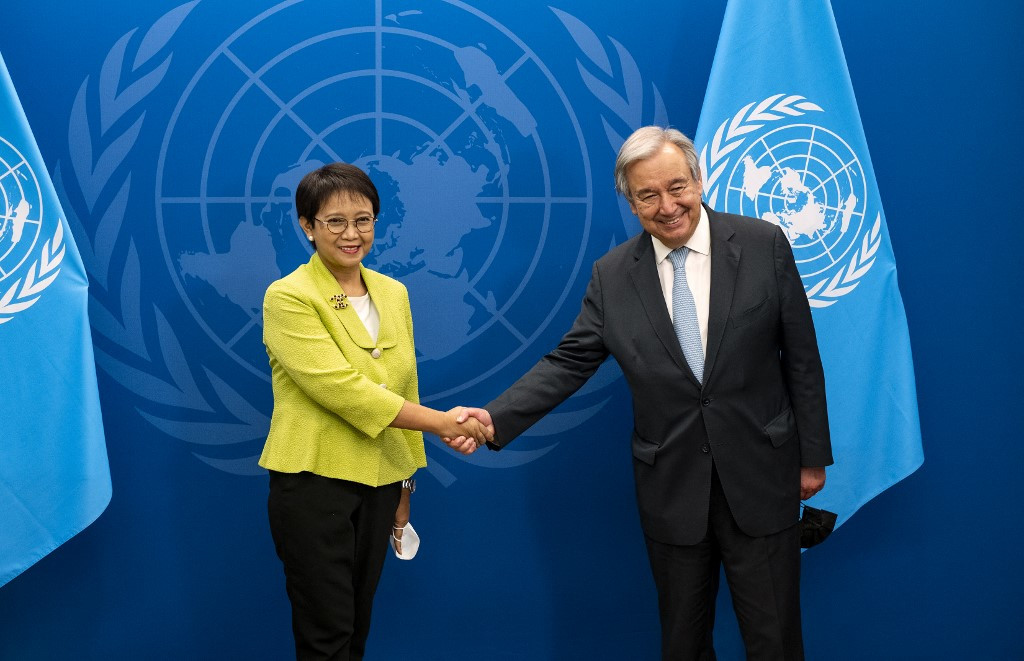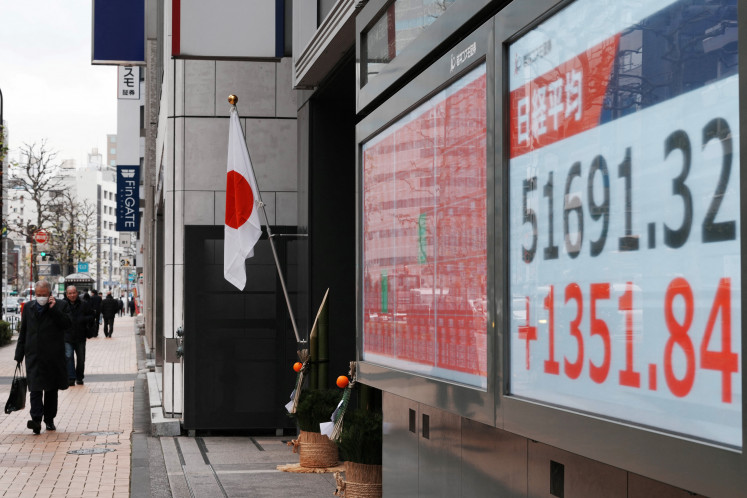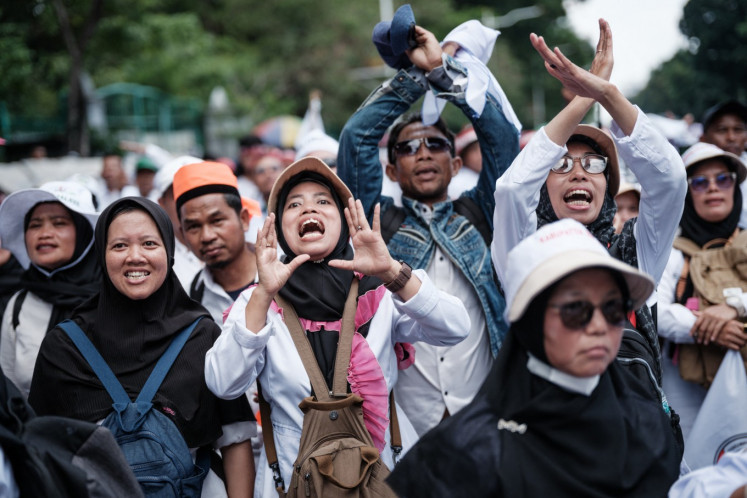Popular Reads
Top Results
Can't find what you're looking for?
View all search resultsPopular Reads
Top Results
Can't find what you're looking for?
View all search resultsWalking the talk
Indonesia is committed to the collective fate of the world, even though it came at the expense of self-reflection on its own domestic woes.
Change text size
Gift Premium Articles
to Anyone

Indonesia’s address to the United Nations General Assembly this year, delivered by Foreign Minister Retno LP Marsudi, might have felt plainspoken and predictable at times, but it was nonetheless commendable for its relevance to the current situation of geopolitical anxiety.
Indeed, it is rare for anyone these days to “tell us like it is”, especially without veering away from collective interests or endangering the safety and wellbeing of the entire world.
In times like this, where a single miscalculation in the Ukraine conflict can potentially unleash another nuclear war on the world, Retno’s talking points were appropriate and reflective of the role Indonesia wishes to play as president of the Group of Twenty (G20) major economies.
The minister spoke on the last day of the UNGA’s “high-level week”, where world leaders and senior officials from member states took turns to voice their opinions on global affairs and the effects on various national interests.
As it was later revealed, this decision to sit back and listen to most of what the world wanted to say was deliberate on the part of the minister, who was offered earlier opportunities to speak amid the fluctuating general debate schedule.
Instead, she chose to wait her turn so she could cut through the complacency that had started to form on the last day of the event.
In her speech, Retno appeared to offer simplistic solutions to the complex issues brought up by UN Secretary-General António Guterres just a week earlier regarding the “duty to act” in the face of “colossal global dysfunction”.
But her delivery also became a sober reminder of how interconnected the world is today -- so much so that past tools we may want to repurpose for the contemporary context are largely useless.
For instance, the Non-Aligned Movement (NAM), which helped developing countries navigate through the polarizing alliances of the Cold War, is not fit for use due to the intertwined economic interests of its member states.
In this context, the Indonesian top diplomat’s words carry some weight; we all could use some flexibility when it comes to geopolitics, especially if it is for the greater good.
It was refreshing to hear a national statement so committed to the collective fate of the world, even though it came at the expense of self-reflection on Indonesia’s own domestic woes.
That said, Jakarta is unflinching in its commitment to making its G20 presidency a success, even in the face of potential failure. It knows full well that the international community expects deliverables, and chooses to look at the work that can be realized. The order of the day now is to ensure the war does not foil existing commitments.
Even if the Bali summit in November fails to deliver, the situation with the war in Ukraine may not necessarily improve under India’s G20 presidency next year. As such, it is necessary for all G20 member states to ensure it succeeds sooner rather than later.
Noting the acknowledgement of Hungary’s Csaba Kőrösi, the president of this year’s General Assembly, that we all need to accept the paradigm shift in global affairs that Retno has suggested, we sincerely hope the world can finally come together in spite of their differences to “walk the talk”.











